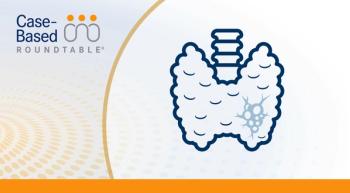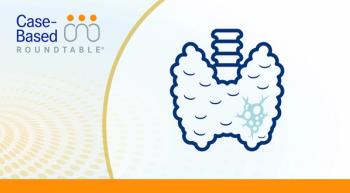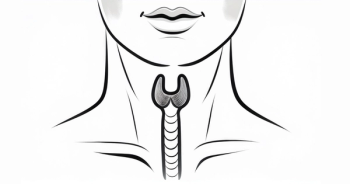
DTC Management: Advice and the Future of Treatment
Lori Wirth, MD: Some practical advice I have for community oncologists taking care of the occasional patient with iodine-refractory DTC [differentiated thyroid cancer] is that these patients are not all that common. Many people do not have the opportunity to see a lot of patients and gain a lot of experience with DTC.
It’s important to have a handle on the natural history of the disease. It’s also important to make sure patients have iodine-refractory disease. The fact that they’ve gotten radioactive iodine in the past is not equivalent to a diagnosis of iodine-refractory disease. That is a good conversation to have with an endocrinologist who knows the patient well.
It’s also important to know the pace of disease. If patients have very indolent, low-burden disease, then they may not need to start therapy right away. However, all the data that we have indicate that when patients have progressive disease, an earlier initiation of an MKI [multikinase inhibitor] like lenvatinib seems to have better activity than withholding initiation of therapy for too long.
We also have a lot of encouraging data that indicate that new gene-specific therapies are now available for these patients. We’ve seen most recently, for example, that approximately 10% or 11% of patients with iodine-refractory DTC will have tumors that are driven by RET fusions, and RET-specific therapy, particularly selpercatinib, is now FDA approved for these patients with iodine-refractory disease. A second RET inhibitor, pralsetinib, has been studied and is showing good results in the phase 1 and phase 2 experience.
Other gene-directed therapy is also FDA approved for patients with NTRK-fusion-driven thyroid cancer. We’ve seen activity with other gene-specific approaches that haven’t been studied in large enough studies to lead to FDA approvals, but BRAF-specific therapy, for example, has been studied, and we have data along those lines as well.
When taken as a whole, a majority of patients with iodine-refractory DTC will harbor gene alterations that are potentially actionable, so there is a role for molecular diagnostics in most of the patients with advanced thyroid cancer at some point in the course of their illness.
Transcript edited for clarity.
Case Information: A 64-Year-Old Man With Differentiated Thyroid Cancer
Initial Presentation
- A 64-year-old man presents with a solitary nodule on the neck and occasional shortness of breath and intermittent excessive fatigue
- PMH: unremarkable
- PE: palpable, hard and fixed solitary nodule
Clinical Workup and Initial Treatment
- Labs: TSH 10.3 µU/mL; all others WNL
- Ultrasound of the neck revealed a 2.2 cm mass near the isthmus of the thyroid; several suspicious lymph nodes ranging from 0.3-2.2 cm in size
- Ultrasound-guided FNAB: confirmed papillary thyroid carcinoma; with nuclear enlargement and nuclear grooves, no colloid seen
- Patient underwent total thyroidectomy with bilateral central neck dissection
- Pathology: 2.1 cm papillary thyroid cancer arising in isthmus of the thyroid, 3 of 7 positive central compartment lymph nodes, largest 1.8 cm, positive extra nodal extension
- StageT2N1MX; ECOG PS 1
Subsequent Treatment and Follow-up
- He was treated with radioactive iodine 150 millicuries
- Whole body scan showed uptake in the neck; indicative of thyroid remnant
- Follow-up at 3 months TSH 0.2 µU/mL, thyroglobulin 68 ng/mL
- Neck US showed no evidence of residual disease in thyroid bed, no suspicious neck nodes. Chest CT was done: > 15 lung lesions, largest 1.4 cm in size
- Lenvatinib 24 mg PO qDay was initiated




















